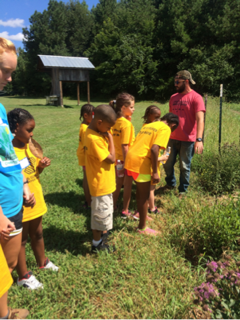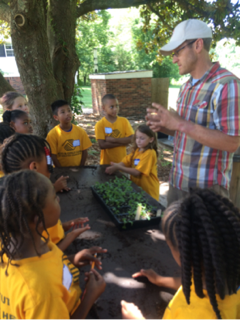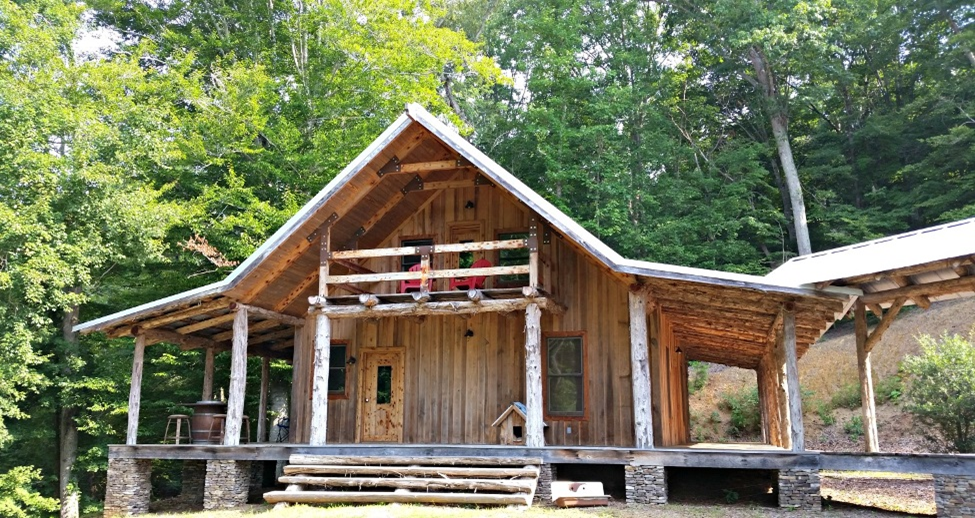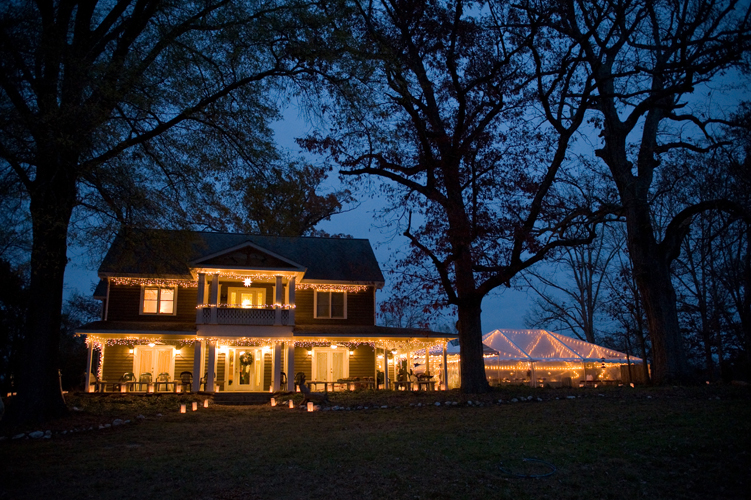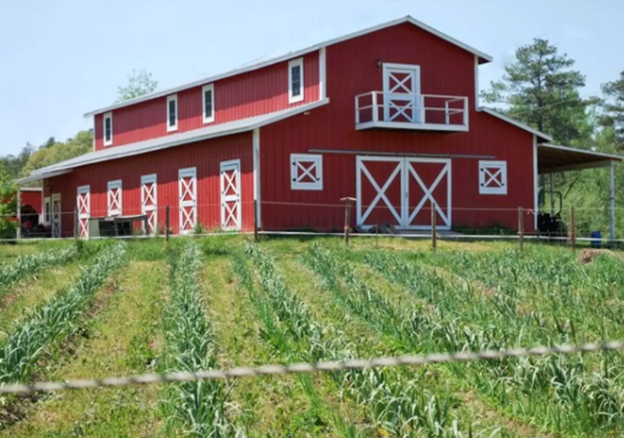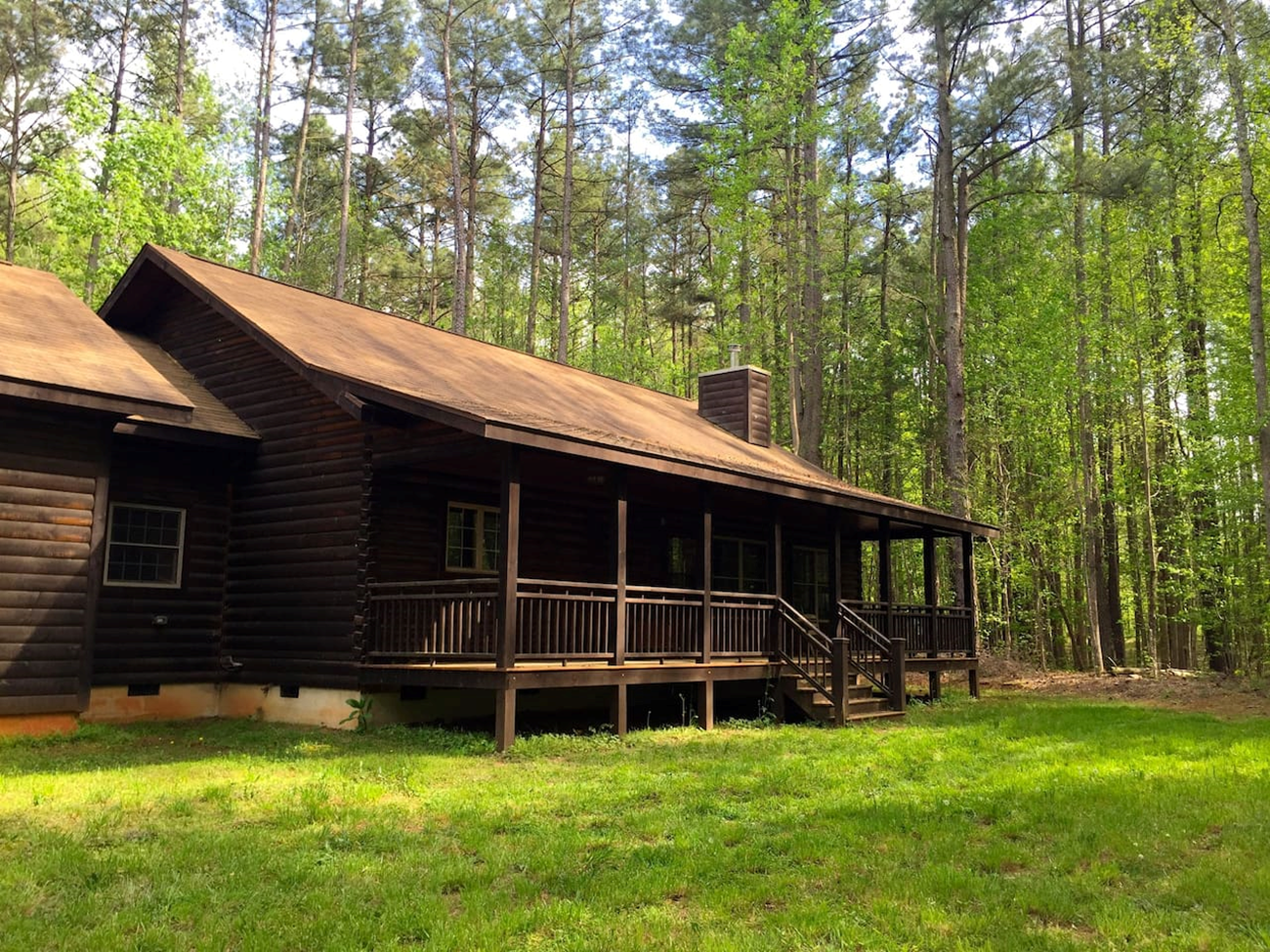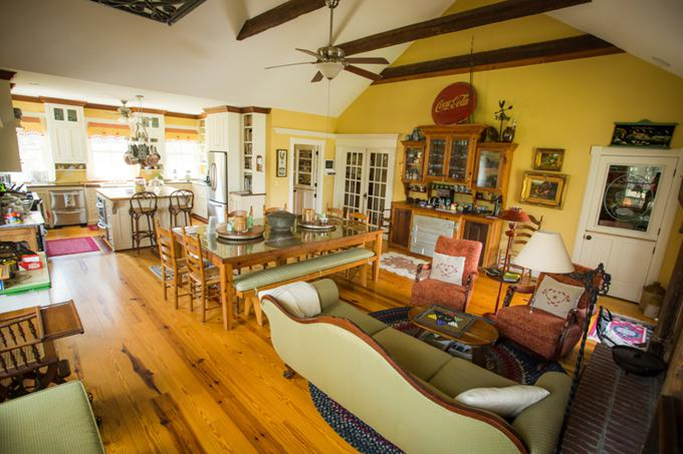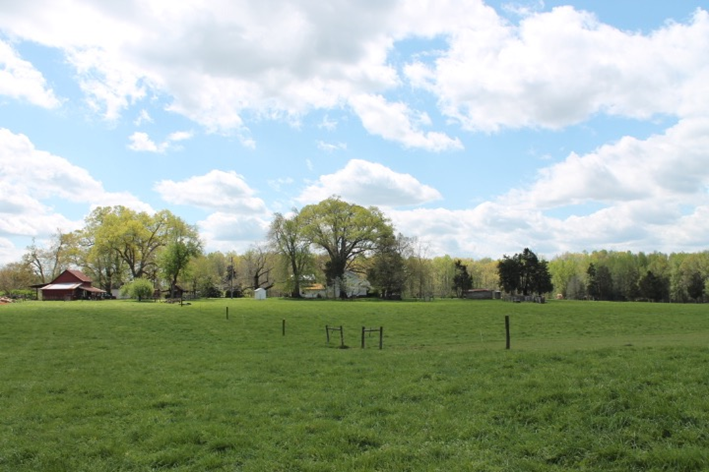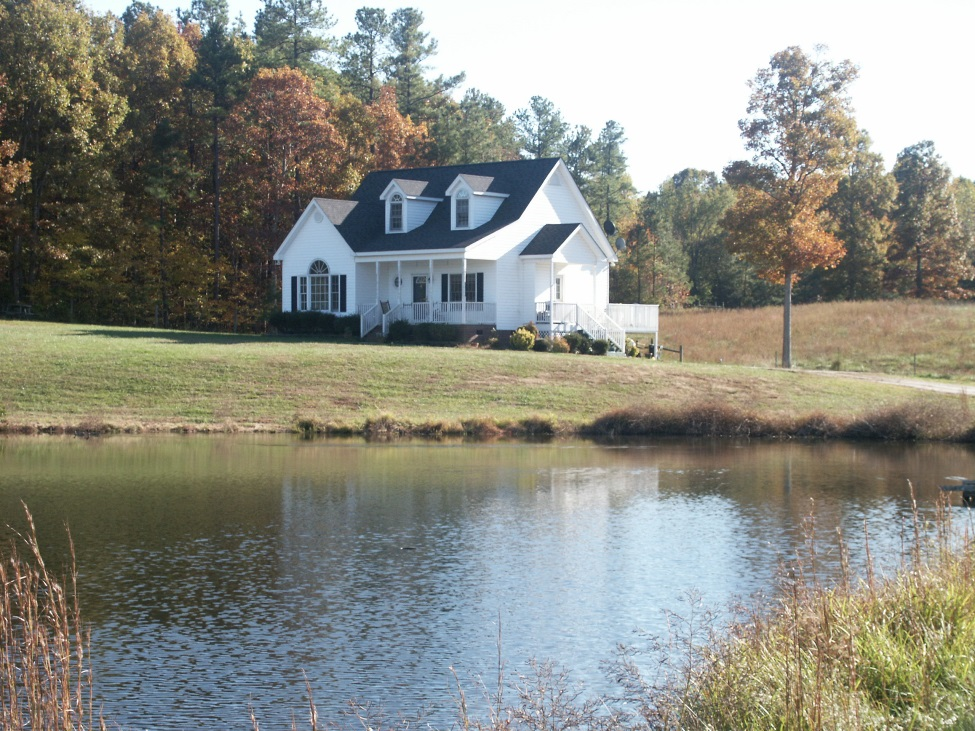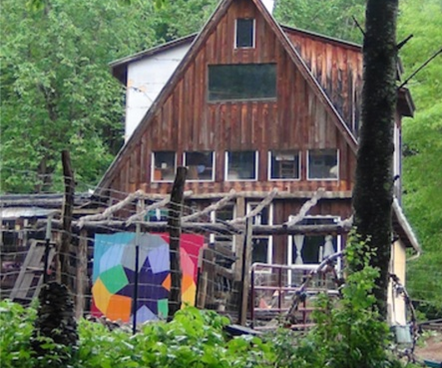by Stephanie Campbell, CFSA’s Outreach Coordinator
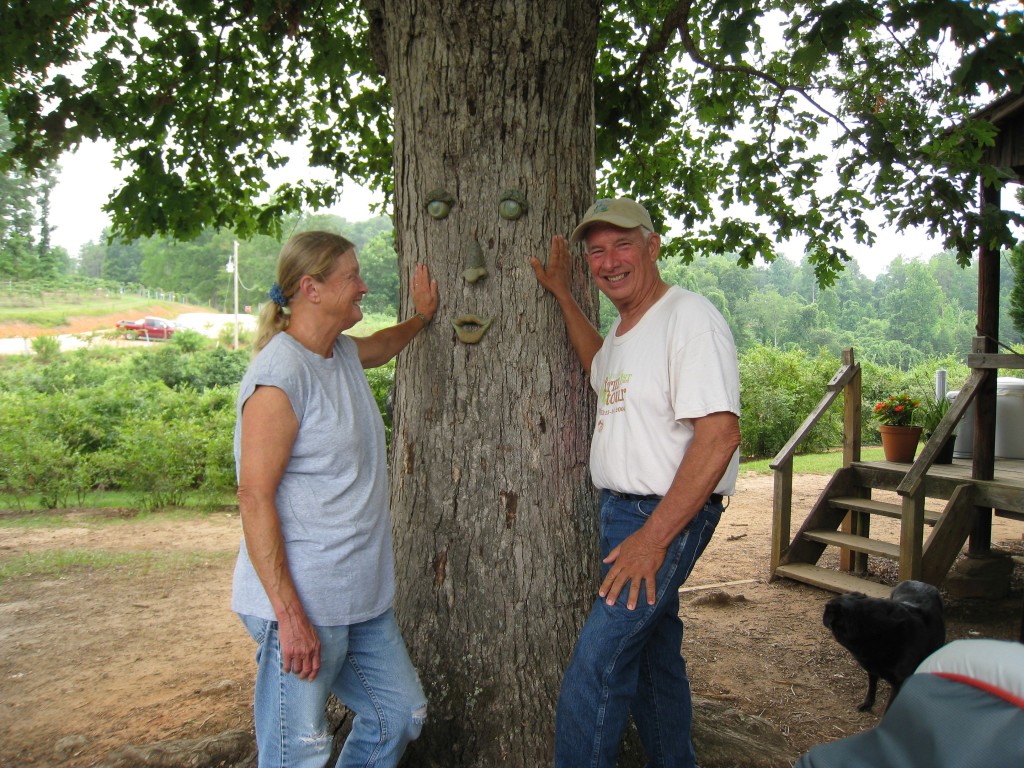
Walker and Ann Miller of The Happy Berry
“The story of this farm begins 10,000 years ago,” says Walker Miller of The Happy Berry when I ask him about his farm. “These lands were grasslands with buffalo, woolly mammoth, and saber tooth tigers. The woodland people were hunter-gatherers and used fire to manage the Savannah – control weeds, recycle nutrients, encourage grazing species and maintain clear vistas and edge habitat to facilitate hunting.”
“Grasses grew to ten, twelve, even fifteen feet high. The managed fires produced charcoal which was trampled and became biochar,” Walker explains to me. “There were four to five feet of rich soils on this land.”
Walker patiently and passionately walks me through the rest of the history of the land, through the years of the Cherokee and then the arrival of the white man, agriculture, cattle and hogs, corn, and cotton. In 1914, when the Conservation Service was born, the soil was gone.
Walker, a now retired professor of plant pathology and physiology at Clemson University, and self-proclaimed “subsistence” farmer with his wife, Ann, and daughters, Betty Ann and Zoe, began restoring the soils on this land in 1979.
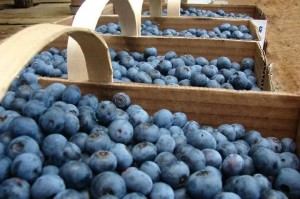 When Walker began growing blueberries here, virtually all blueberries were being grown south of Wilmington. He believes that perennial crops are the key to the future of farming. “When you plant perennials,” he says, “the plants themselves build carbon networks and consistently build humus in the soil that has a half-life of thousands of years, augmenting a healthier, for earth, carbon cycle.”
When Walker began growing blueberries here, virtually all blueberries were being grown south of Wilmington. He believes that perennial crops are the key to the future of farming. “When you plant perennials,” he says, “the plants themselves build carbon networks and consistently build humus in the soil that has a half-life of thousands of years, augmenting a healthier, for earth, carbon cycle.”
Berries are a frost susceptible crop so Walker spent four years looking for suitable land and worked with an ag meteorologist at Clemson to identify this site which is 9 degrees warmer on frosty nights than just a half mile up the road.
Walker and his family have been working ever since to steward this land. “Ultimately,” Walker states, “our belief is that local farms like ours provide an essential environmental service for the future of our planet.”
The Farm
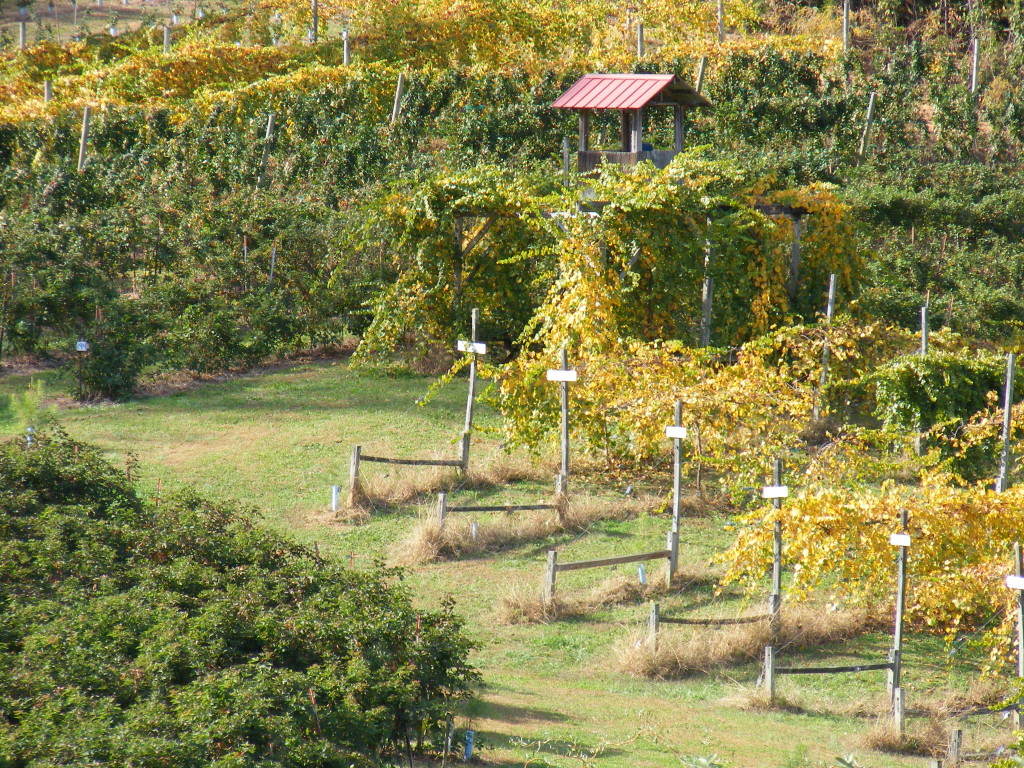
A view of The Happy Berry
The Happy Berry is a pick-your-own farm on twenty-two acres in the Upstate region of South Carolina. The main crops are blueberries, blackberries, figs, muscadine and seedless table grapes.
In recent years additional frost tolerant crops have been added such as goji berry, persimmons, dwarf black mulberry, and seedless muscadines. The farm maximizes the harvest season by planting several different varieties of each crop so berries can be picked from June 1 until early October.
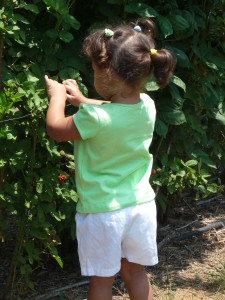
Even the smallest berry-pickers have smiles on their faces at The Happy Berry
Pre-picked berries and fruit can also be purchased on-farm and at four local farmers’ markets: Greenville TD, Clemson, Six Mile, and Anderson. Walker is quick to point out that “no farm is successful until it is marketed – the real deal is my wife and daughters who market the farm!”
Ever looking to find ways to care for the land and diversify farm income, nine varieties of pussy willows are grown in the winter in riparian areas to help with water management. Pollination is always a concern. Honey bees are invasive and they compete with the native bees which are necessary for blueberry pollination. Flowers and forage have been planted all over the farm to attract and sustain native bees.
The First Blueberry
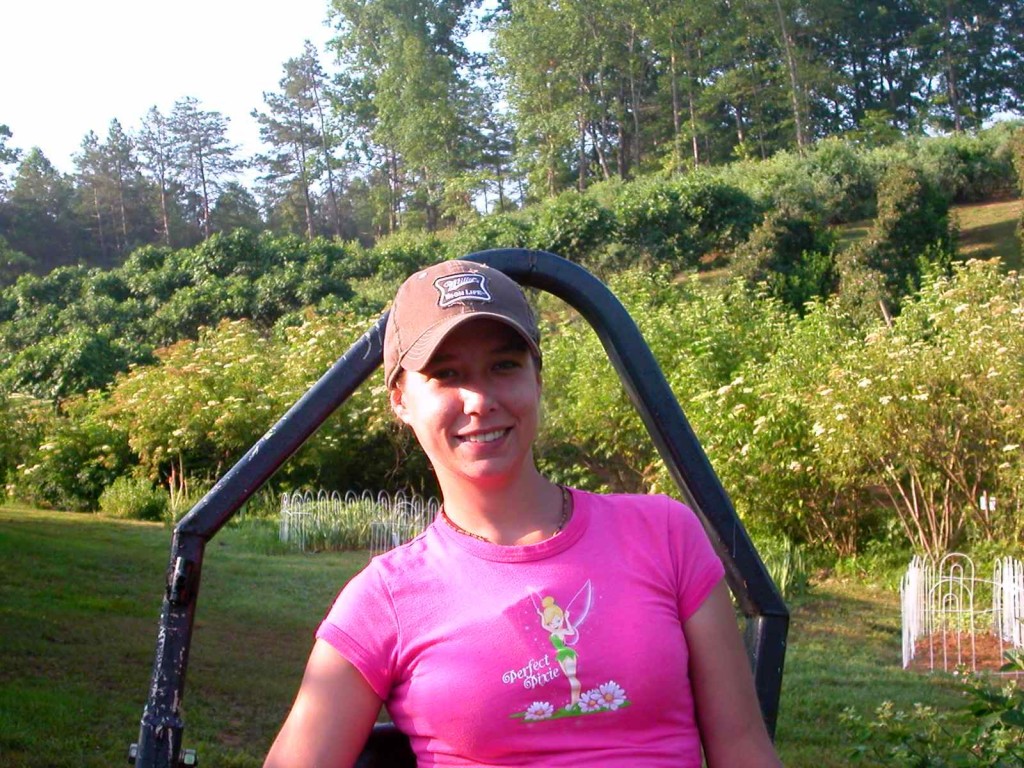
Zoe Miller on the farm
“They call me the first blueberry,” Walker’s daughter Zoe shares. “I was born in May of the first year of production on the farm. I’m the same age as the farm – thirty-five.”
Zoe grew up on the farm and, after a few years away from the farm as a young adult, she has been a full partner and hopes to continue the legacy her parents have established. Her sister, Betty Ann, was fifteen when the farm began and worked her way through college on the farm. She continues to be a part of the family farm as she handles the website and online marketing for the farm from her home in Waynesville and brings granddaughter, Sarah, to the farm on weekends.
“There’s a joy families experience,” Zoe says, “when they spend time outdoors around growing things and picking delicious and healthy food for their family table.” She loves seeing children with “big smiles and blueberries running down their cheeks.”
Zoe enjoys that the farm is an integral part of the community and seeing how many people love being on the farm. “There’s a joy families experience,” Zoe says, “when they spend time outdoors around growing things and picking delicious and healthy food for their family table.” She loves seeing children with “big smiles and blueberries running down their cheeks.”
Both Zoe and Walker insist that transparency with their customers, educating them and sharing with them the whole truth so they know how you care for the land, is essential to the trust and support they have built in the community. Walker rattles off a series of stories of methods, techniques, research and trials he has undertaken on the farm and he honestly shares both the failures and the successes.
A shade cloth research project testing yield on primocane bearing blackberries, funded by SARE, was one of the “failures” and is detailed on the farm website. As a result of that research, though, a new experiment is underway, planting pine trees (Loblolly, Italian Stone, and Long Leaf) in E-W rows among the orchards to provide weather mediation (passive frost protection, slowing down violent thunderstorms) as well as sequestering carbon above and below ground.
After attending a CFSA presentation on bio-char, Walker began studying it and envisions a batch kiln to make bio-char from the prunings, which will then be sprayed under the bushes allowing the nanoparticles to move down through the soil. “Is it practical to do?” asks Walker. “Don’t know yet.”
“Dad always told us,” Zoe shares, “that the worst thing you can do as a farmer is to get comfortable. You need to be always progressing, always learning and trying new things.”
The Future of Farming
“It is plain that global warming is happening and is being driven by the use of fossil fuels and how we do agriculture,” Walker states in his report, Climate Mitigation and Adaptation Action Plan. “In 2016,” he notes, “over seventy percent of us know we must transition away from fossil fuels but only a few of us grasp that the 12,000 year old (paradigm) way we do agriculture must change!”
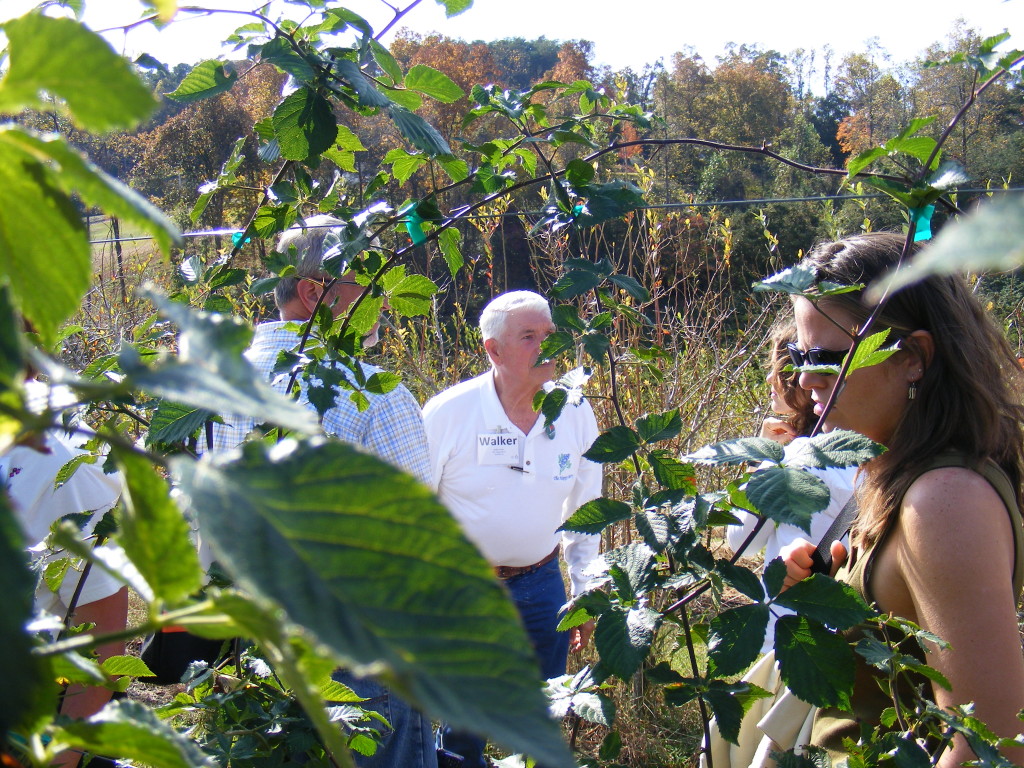
Walker Miller takes eager farmers on a tour of his farm as part of the Sustainable Agriculture Conference held in Greenville in 2012
Walker recommends several resources which are shaping his thinking and planning for the future. Wes Jackson, at The Land Institute in Salina, Kansas, is developing perennial crops which Walker agrees are key to the future. Laura Lengnick’s book, Resilient Agriculture, and Mark Hertsgard’s, Hot Living Through the Next Fifty Years on Earth, prompted Walker to write out his own farm action plan.
Walker doesn’t mince words as he explains that “all economic systems require through-put – natural resources including our soils – and currently we are exploiting other countries and cultures as well as our own for these natural resources.” He believes that we must learn to live within the resources of our bioregion and pay attention to the direct bio-feedback regional farming and natural resources provide.
Walker sites Molly Scott Cato’s book, The Bioregional Economy: Land, Liberty and the Pursuit of Happiness, to support his understanding that “current economic systems are not sustainable and when they collapse it’s going to be farms like this one which the world will need.”
Walker is proud to have been named CFSA Farmer of the Year in 2014. He constantly continues to experiment, learn, lead and share what he has learned with the farming and food network.
“It seems unlikely, in the grand scheme of things,” he says, “that our efforts here on this farm will have a major impact, but perhaps we can be an example for others and contribute to a resilient and sustainable future for farming, and for the earth.”
To learn more about The Happy Berry and links for reports, go to www.thehappyberry.com.
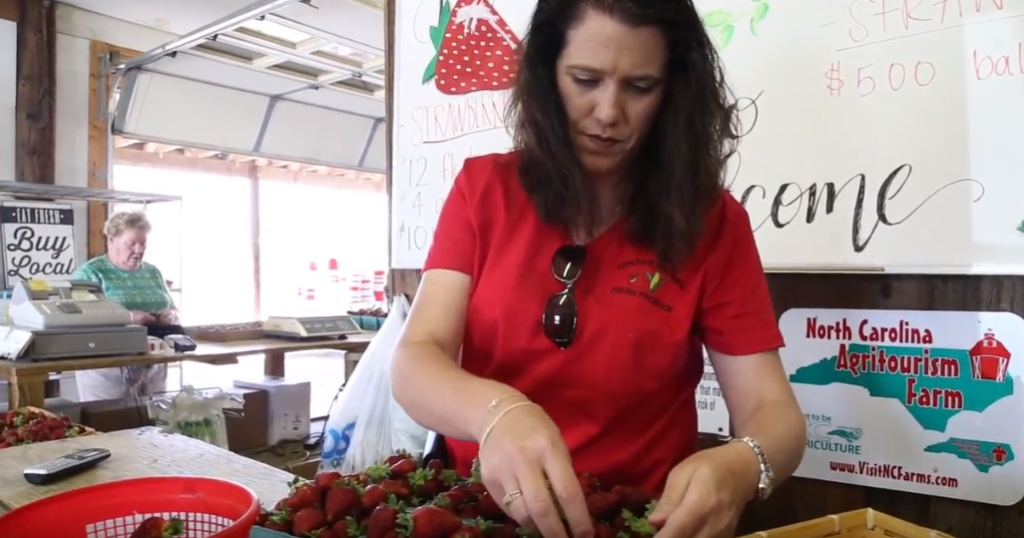


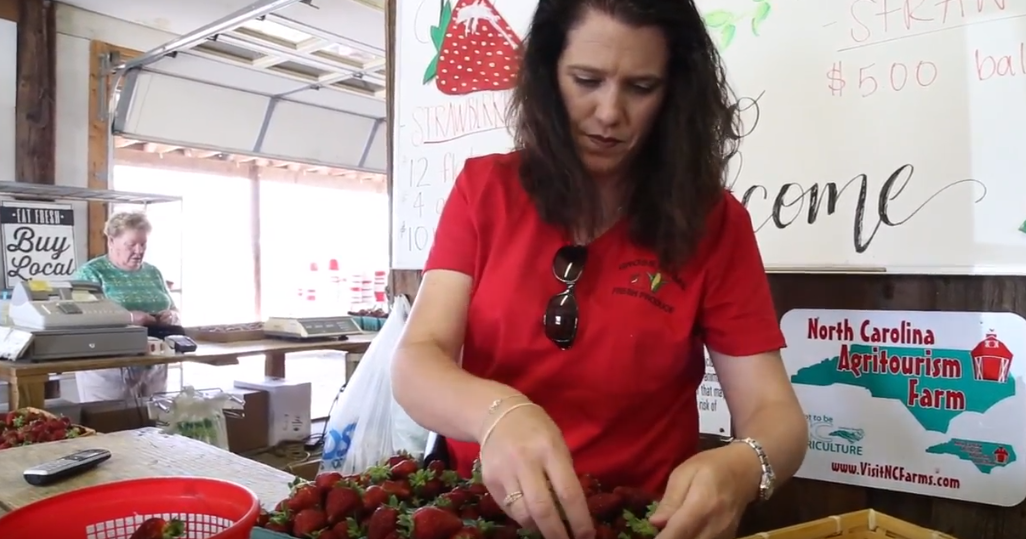
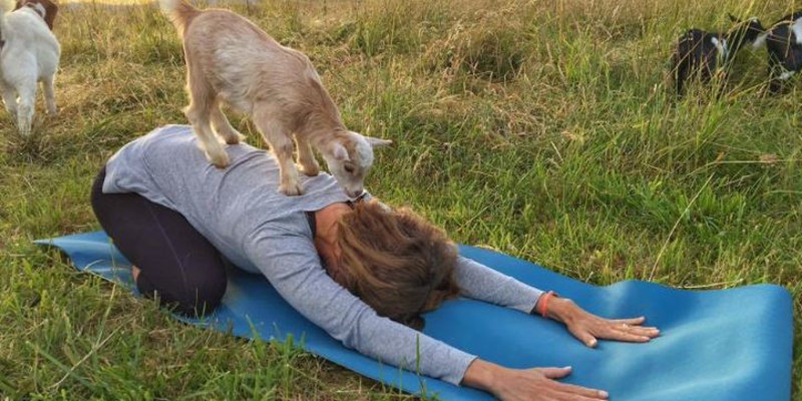
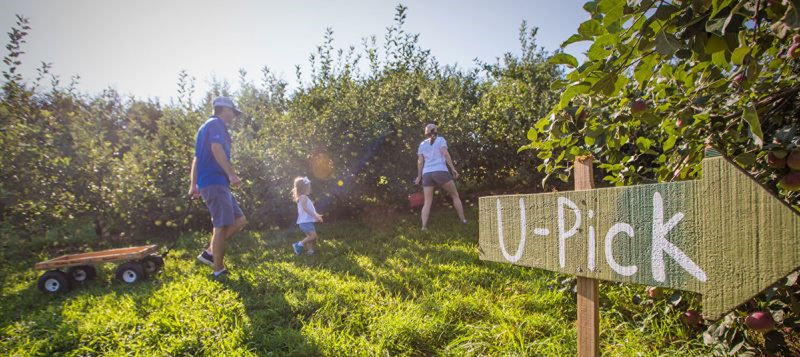
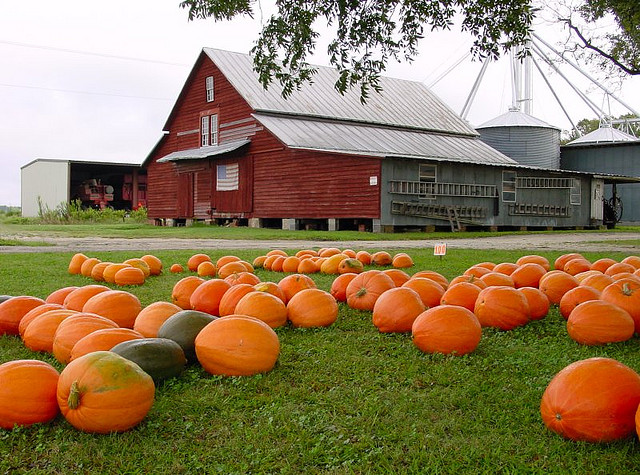
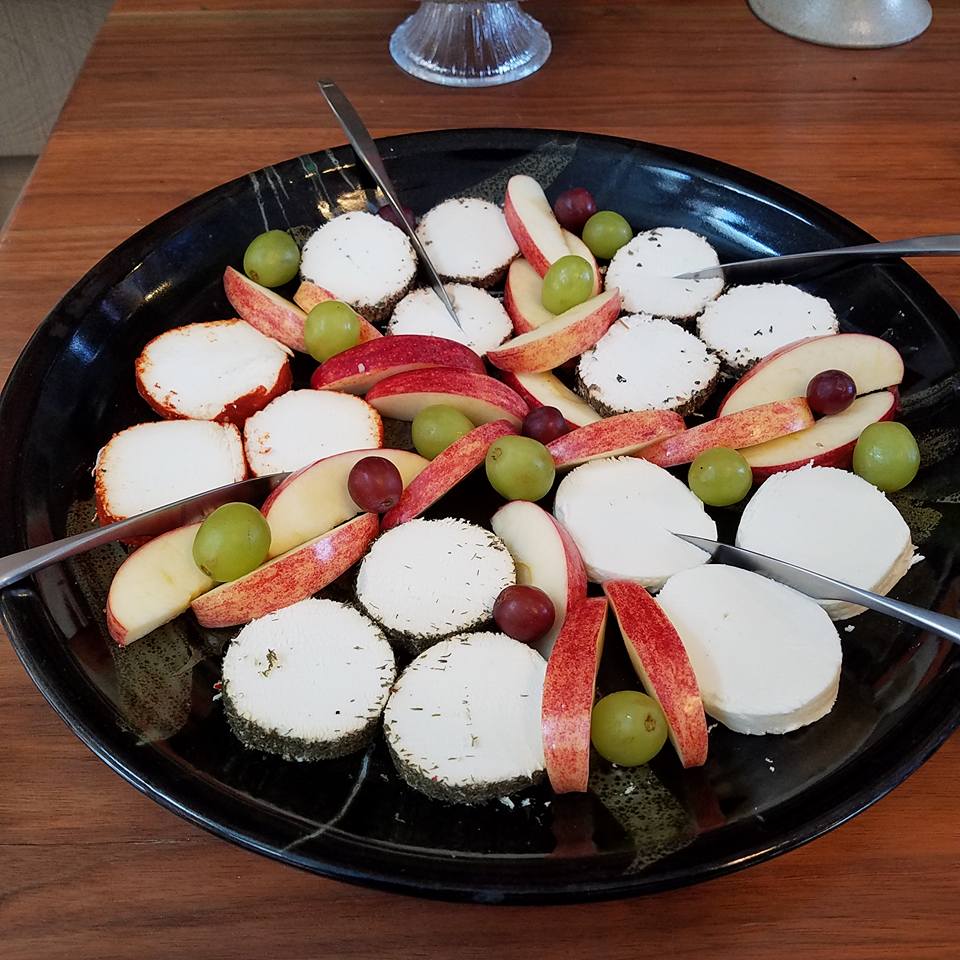
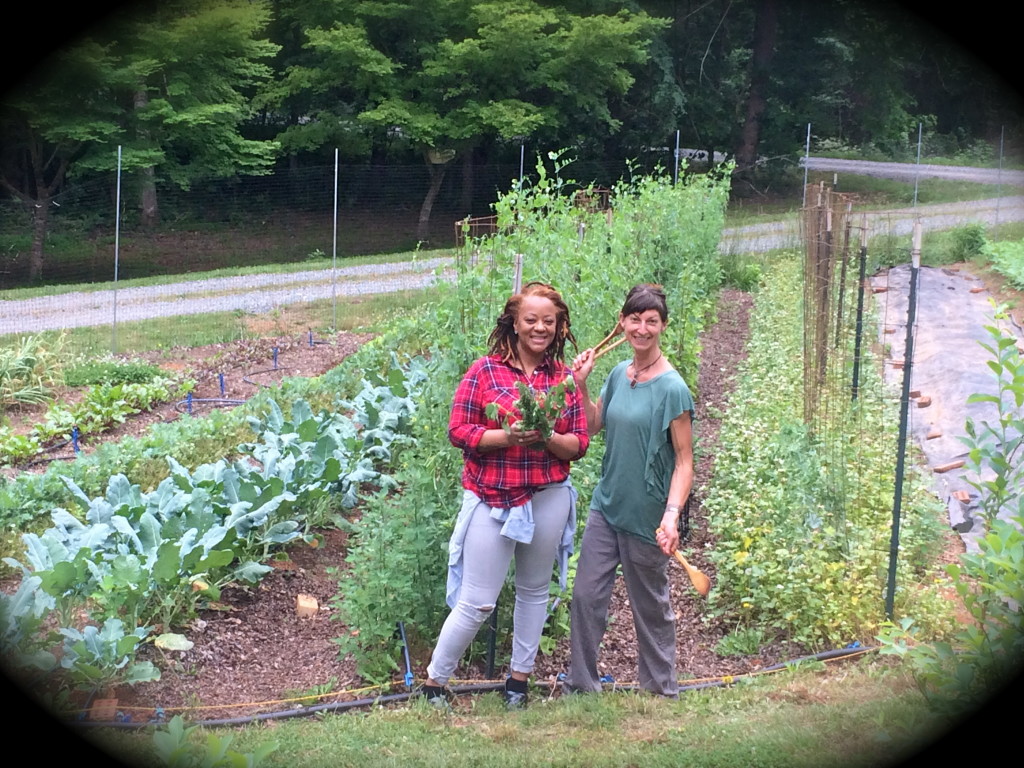
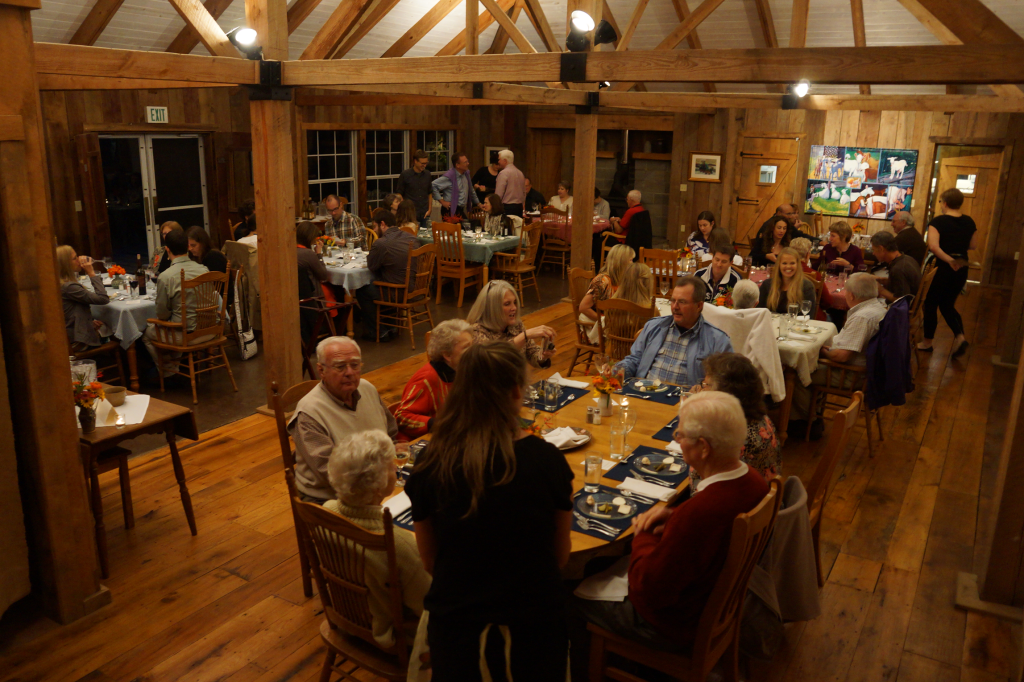
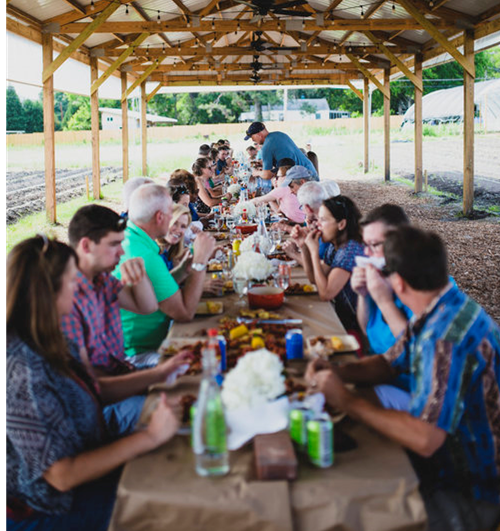
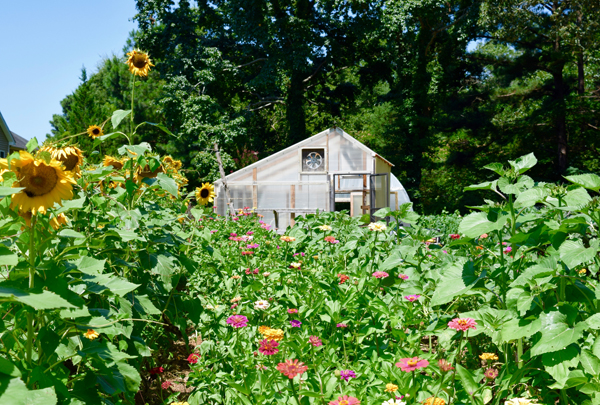
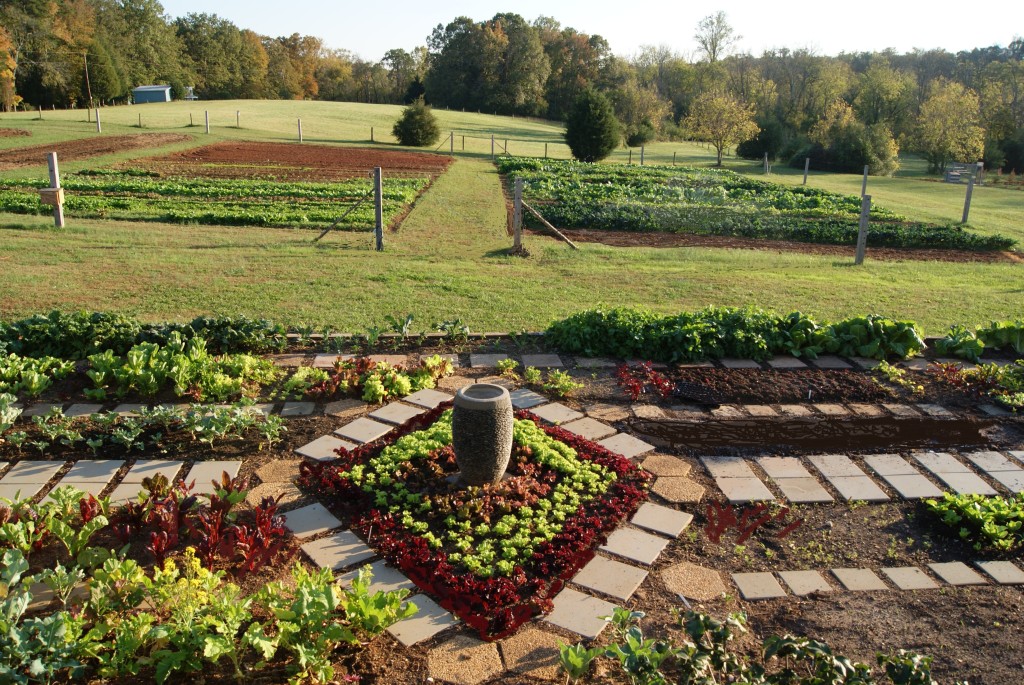
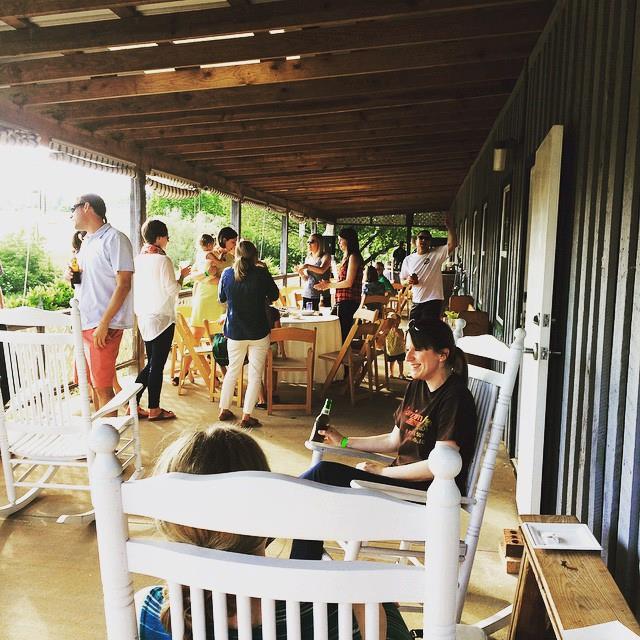

 When Walker began growing blueberries here, virtually all blueberries were being grown south of Wilmington. He believes that perennial crops are the key to the future of farming. “When you plant perennials,” he says, “the plants themselves build carbon networks and consistently build humus in the soil that has a half-life of thousands of years, augmenting a healthier, for earth, carbon cycle.”
When Walker began growing blueberries here, virtually all blueberries were being grown south of Wilmington. He believes that perennial crops are the key to the future of farming. “When you plant perennials,” he says, “the plants themselves build carbon networks and consistently build humus in the soil that has a half-life of thousands of years, augmenting a healthier, for earth, carbon cycle.”




